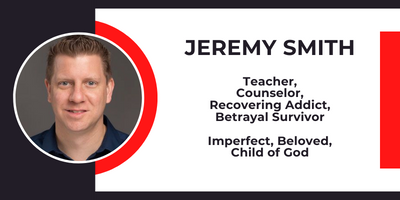Feedback Loops Can Ruin A Marriage
Mar 12, 2024
Have you ever attended a concert when an audio feedback shook the venue? It's an ear-piercing tone that damages both equipment and ear drums.
It occurs when amplified sounds re-enter a microphone and is amplified again until maximum output capacity is reached, generating the ear-piercing tone. It requires an audio specialist to break the cycle and reestablish balance.
In one on one helping relationships, feedback loops are essential for reflection and growth. The process is beneficial, so long as the topics are limited to the individual's issues.
However, if the topic of concern is an interpersonal relationship, the very same feedback loop becomes an echo-chamber that can undermine and even ruin a relationship.
Selective Disclosure
Because of interpreter bias, humans are prone to selective disclosure, meaning they reveal only what makes them look good and what makes the other person look bad.
It happens with my kids daily... one comes crying about an injustice committed by a sibling. Further investigation reveals bad behavior on both sides... behavior that was strategically undisclosed.
When in conflict, the tendency is to highlight our positives and minimize our negatives, while doing the opposite about the other party... highlighting their negatives and minimizing their positives. When a marriage relationship hangs in the balance, this is especially risky.
Any third party offering support, be it a family member, friend, pastor or counselor, will be affected by the tendencies of selective disclosure and strategic highlighting.
Failing to be aware and compensate for them makes a person complicit in a closed feedback loop that amplifies the biased perspective of the individual.
Building a Narrative
Anytime a person shares about a non-present party, listeners automatically build a narrative about that person. Without first-hand engagement of the other party, that narrative is formed solely by selectively disclosed data. This may happen consciously and subconsciously.
Under these conditions, supportive parties may offer feedback, but doing so creates a closed feedback loop based on a narrative controlled by one individual. This kind of echo-chamber amplifies a person's pre-existing biases and distortions, rather than challenging them. While they may feel individually validated, the dynamics created have potential to put the relationship at risk.
In Therapy
Over the past 15 years of professionally guiding couples through recovery, I've noticed an distinct pattern. For some, closed feedback loops are exactly what they want.
They refuse to see the same therapist as their spouse in order to maintain control of the narrative the professional builds about them, their spouse and their marriage. It's a perfect way to secure unquestioning affirmation and support without personal accountability.
Sadly, many therapists are willing participants in this dysfunctional dance. When asked why, I've heard answers that often point to how much easier it is to simply align with one person's perspective and avoid the confusion of competing narratives.
While that is likely true, is it what's best for the client and marriage? Or is it simply best for the therapist?
Best For Whom
So it begs the question, who is therapy really for?
If the issues to be addressed have no significant correlation with a spouse, then solo therapy is perfectly appropriate and best for the individual.
If the issues are marriage related, but only one spouse is willing to do professional counseling, then solo therapy is unfortunately the only option. While the individual will benefit, the marriage may suffer due to the closed feedback loop. Keep these dynamics in mind and proceed with caution.
If both spouses are willing to do professional counseling to address their personal issues and their contribution to the relationship dynamics, then solo therapy with separate therapists would be a detriment. It would be more effective to find a single therapist who could navigate the needs of both spouses as well as the marriage system. Doing so is best for all three "clients"... him, her, and them.
Holistic Approach
At MRC, we call this a holistic approach, one that balances the needs of the betrayed spouse, the unfaithful/addicted spouse and the marriage system.
- As a betrayed spouse, it is essential to find help that understands betrayal trauma.
- As an unfaithful/addicted spouse, it is essential to find help that understands addiction.
- As a marriage relationship, it is essential to find help that understands complex systems dynamics.
- As a person of faith, it is essential to find help that can integrate the gospel without religious abuse.
Finding one guide who can balance all four simultaneously is extremely difficult and precisely where the Marriage Recovery Course shines. It is specifically designed to provide men, women and marriages the holistic, balanced approach to healing their marriage deserves.
If that's the kind of recovery experience you desire, then MRC is for you. Click below to learn more.
Marriage Recovery Course
RELATED:
- Unexpected Benefits of Hybrid Therapy
- Maestro Please! The Holistic Approach
- What makes a good counselor? Things I wish I would have known
- "Traumatized By Counselors & Pastors"

Stay connected with news and updates!
Receive emails about new posts, free webinars, trainings and live events.
We hate SPAM. We will never sell your information, for any reason.

